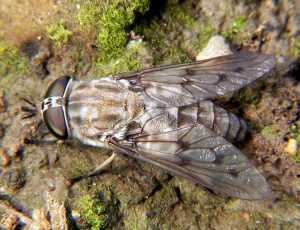Heatwave Causes Bites from Horseflies to Increase
Although most of us have been enjoying the warm weather this Summer, the heatwave has also been a significant factor in the growth of some biting insects which flourish in the heat, specifically horseflies.
Reports from the NHS helpline 111 suggest that numbers of insect bites are almost double the rate usually seen in July, with around 9,000 people seeking advice from the helpline on 8 July. This is in tandem with numerous infected horsefly bites needing antibiotic treatment in hospital, though this is uncommon.
Why are Horseflies Bad? 
Although all biting insects are on the rise, horseflies are known for breaking a significant amount of a person’s skin. This can be both painful and take a long time to heal, increasing the chance of infection.
Horseflies are known for their bite. In the worst cases, the bites can cause cellulitis, a bacterial infection of the tissues in the body. Not only is this unsightly, but highly discomforting.
Why Has the Warm Weather Caused their Increase?
Although there is no official data to prove that horseflies are on the rise, the number of bites and the perfect breeding conditions are evidence of such growth.
Horseflies thrive in the warm conditions. The fact that temperatures peaked between 24 June and 9 July, when highs of 28 degrees Celsius were recorded somewhere in the UK every day, provided the ideal breeding ground for the flies.
How Can I Avoid Being Bitten by Horseflies?
There are a number of ways that you can limit the breeding of the horseflies. The main thing is to use eucalyptus oil, five drops of this on your skin usually keeps horseflies away from you and will prevent them from biting you. Another way is to ensure that all standing water in the garden is disposed of, horse flies like water with plenty of bacteria on it, and this is an ideal breeding ground for them.
What Happens if I am Bitten?
Firstly, you’ll feel a sharp pain thanks to the horsefly’s very sharp teeth. You will also notice a raised area of skin around the bite. Other symptoms will include rashes, dizziness, weakness and wheezing. You may also experience swelling around the eyes and lips.
It’s important to wash the bite as soon as possible and add a cold compress. You should not scratch the area as this could increase the risk of infection. You should also take antihistamine medication as soon as possible. If you believe the bite is infected, it is recommended you seek medical attention.
If you believe you have a fly infestation in your own home or business, Confirm A Kill offers fogging and UVL treatment in order to eradicate flies quickly and efficiently. Get in touch if we can help.
